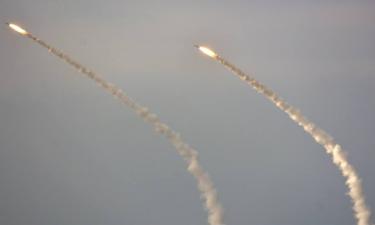Enlargement of Russian regions will take place all the same
Russian officials are always ready to fulfil any monarchical will, if such is to come from above, it is well-known. But how can we treat such actions, if no instruction for deeds is coming? Indeed, physiognomy is really very significant for those, who wish to make up good career. That is why some officials have learnt to read someone’s lips even for such facts that can not be officially announced in order not to anticipate development of the situation. If the tactics fails, you can always say you have been misunderstood, and that is enough.
Last week president Putin paid an inspection visit to the Krasnoyarsk region, where a real war had been launched against Taimyr (the neighboring territory for the Krasnoyarsk region) by Krasnoyarsk governor General Alexander Lebed. As a result, the region’s social and economic situation is practically critical.
President met with governor of the Krasnoyarsk region Alexander Lebed and Taimyr governor Alexander Khloponin, and found out that the Taimyr autonomous district wanted to reunite with the Krasnoyarsk region and Evenkia. The attitude of the president to the initiative is not clear yet, he asked Alexander Lebed to work out his own suggestions on the problem by April. This may seem to be quite a logical end, but not indeed. First of all, the president charged the Krasnoyarsk governor with settlement of inter-budgetary relations between the region and Taimyr. Replenishment of the regional budget should not any more depend upon the Norilsk Nickel, the enterprise which taxes make up 70% of the whole regional budget. Alexander Lebed rushed to fulfil the president’s instructions with a great zeal, but the mentioned above fact was ignored. Reunification of the Krasnoyarsk region, Taimyr and Evenkia is just a way to settle all economic problems, as Alexander Lebed sees the process.
But a problem appeared at once. Taimyr governor Alexander Khloponin and Evenkia governor Zolotarev are not going to play second roles in Lebed’s game. They think, no haste can be made about reunification. First of all, the region’s living standard is to be improved, and only after that a reunification may take place. Moreover, a positive result of a referendum is to be obtained for this very purpose as well.
After that Alexander Lebed should have stopped for a while, but he would not. The federal center has come in handy at that as well.
Today Federation Council Speaker Sergey Mironov has announced, he was a supporter of reduction of the RF subjects in number, thus enlarging the regions. He has told journalists today, “89 federation subjects is too much, but larger regional units are easier to manage.” At that he admitted, the ideal model is to create seven federal districts, that “can be gradually achieved.” At that Sergey Mironov mentioned, a special federal law existed in Russia that “may allow the process of federation subjects’ enlargement, but interests of the population living in the regions are also to be taken into consideration at that.”
It is perfectly known, the speaker is not a mouthpiece of his personal opinion, he helps the Kremlin to understand the situation in the country better. If the population’s reaction is positive, we may forget Putin’s statement as concerning the Constitution’s invariability; if negative, the event can be forgotten at all. We remember perfectly well the speaker’s escapades: extension of the presidential authority, refusal to meet with Arafat, burial of Lenin.
Today Sergey Mironov managed to win support of Alexander Veshnyakov, the head of Russia’s Central Election Committee, who is also positive about enlargement of the federation subjects. He thinks, it is really very important to avoid making a fashion of the enlargement process. Actual problems are to be taken into consideration first of all. In Veshnyakov’s words, the federal legislation “makes for solution of such problems.” Alexander Veshnyakov warned that no arbitrariness of officials is to be allowed in the process, opinion of the population is of great importance for making such serious decisions. A referendum is to be held in the federation subjects that are further to be united. Arguments for unification are to be the strongest and well-defined, otherwise the population may not catch on the idea, thinks the head of the Central Election Committee.
The example of the former Soviet Union was mentioned at that: it is easier to fall apart than unite. A number of independent states appeared after the break-up of the USSR, their leaders got all presidential authorities. Alexander Veshnyakov admits that interests of the people and authorities do not often coincide. It looks as though a tendency for unification of the regions has outlined in Russia (PRAVDA.Ru recently published about similar initiatives for merger of Russian regions submitted by Yaroslavl governor). Probably, Krasnoyarsk governor is right with his active work on the problem.
Dmitry Litvinovich PRAVDA.Ru
Translated by Maria Gousseva
Read the original in Russian: https://www.pravda.ru/main/2002/03/30/39045.html
Subscribe to Pravda.Ru Telegram channel, Facebook, RSS!





